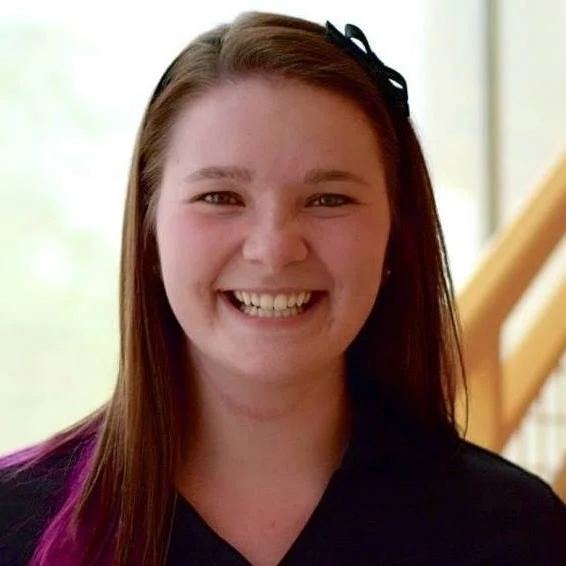#NewPlay - Dramaturg Margaret Baughman on Lecherous Honey and New Play Development
“I always re-write my re-writes at least eight (and-a-half) times, surrounded by the most elite collaborators: Ruhl, Stoppard, Chekhov, and Sophocles.” -Henrik Ibsen
Assistant Dramaturg, Margaret Baughman
Okay, so good ‘ole Henrik didn’t really say that, but it is definitely true: collaborators are key. Working on #NewPlays is quickly becoming my favorite theatre process, and Lecherous Honey was no exception. Even new plays using source material - like Ghosts - lead to endless questions and options of paths to take. With an existing play, you have a script that is set in stone - any creative choices that you make in the concept, design, and rehearsal process must stick to a set of loose rules that are outlined by what is written. With a new play, this text-bible is constantly changing. It is “live” - as the ‘turgs say - and until certain scenes or acts are “locked in” or “frozen,” the playwright will likely be refining each word of the play to tell the exact story they want to tell in the clearest way possible.
With Lecherous Honey, Megan (Megan Breen - Playwright) had to decide which parts of Ghosts she wanted to keep and which parts she would riff or flip upside-down. This is a great starting point for an adaptation, and it helps everyone be on the same page, since the company and production team are usually familiar with the source material. Katie (Katie Hemingway - Production Dramaturg) and I read each new scene or draft of the play, trying to look at it with an audience’s eye to determine if they would be able to follow Honey without knowledge of Ghosts. We would discuss with Megan whether refined dialog met the original goals of the play; she knew that she wanted to focus on the idea of inherited sin, specifically in relation to sexuality. Keeping this in mind, we could give input on whether or not the newly-written pages brought us closer to this goal.
Developing a new play is something that doesn’t happen overnight. A playwright doesn’t sit alone at their desk with a MacBook and - like magic - a finished play appears.
It is a tricky balance for a dramaturg to know exactly how far and when to push a playwright to make adjustments. For Honey, we did a reading over the summer and a workshop with the full production team and cast a month before starting rehearsals. This gave Megan a chance to hear her words brought to life by the play’s actors, allowing her to make adjustments based on what they brought to the script. Having these steps before a full rehearsal process allows the playwright, director, and dramaturg to talk through possible issues and questions before actors are in the room all the time, attempting to memorize a script that changes day-to-day. (I’d be absolutely lying if I said the script is ever finished as we all walk into the first rehearsal - but that’s what makes it exciting!) Oftentimes, actors’ approach to and embodiment of characters can greatly affect the development of the script, so it is hard to predict exactly when everything will be finalized.
Meg Elliott & Sarah August Hecht in Lecherous Honey photo by John Jennings
To work on a new play, the team must be flexible. They must be particular about the way they phrase feedback and criticism. They have to be awesome at asking questions. They have to know when to let the playwright write a play. They have to figure out the best way to tell the playwright to stop writing a play. They must read and re-read and re-re-read and know when to trust their instincts. They have to be analytical and creative and think-on-their-feet-able and sit-back-and-listen-ical. They have to know the source material inside-out and completely forget everything they’ve ever heard of the source material. They have to communicate phenomenally - both verbally and via email - especially if the playwright lives in Los Angeles and you’re rehearsing in Chicago.
Developing a new play is something that doesn’t happen overnight. A playwright doesn’t sit alone at their desk with a MacBook and - like magic - a finished play appears. A new play involves collaboration and celebration, writing and waiting, listening and learning how each person in the process functions in the rehearsal room. It’s unpredictable and risky, but rewarding and all-consuming, which is exactly why it is my favorite way to work. It makes me wonder who HenIbz had around him to take in his plays for the first time, and whether there was a voice that said, “No, Hedda should kill herself, rather than have the mother-in-law do it.” (That could have been a draft! We don’t know!) Alas, he is dead now, which means that we can use his plays to fuel brand-new work through the brilliant eyes of people like Megan Breen, supported by a team specifically equipped with the above traits and desire to produce a #NewPlay.
-Margaret Baughman
Margaret Baughman served as the Assistant Dramaturg on Lecherous Honey. From show-to-show, dramaturgs serve many functions. In this case, she did much of what's slated above: in particular, working with the head dramaturg, Katie Hemmingway; the playwright, Megan Breen; and the director, Chris Peak. Dramaturgs must communicate with all these team members to ensure the goals of the production are being achieved.


